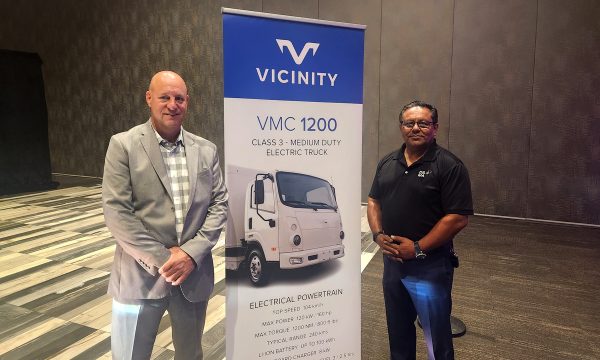Some may be ready to buy a vehicle that’ll actually make them unhappy
Qualifying potential buyers is a standard part of the sales process. Now, however, there’s an added dimension to it. With all the media and government focus on being green and reducing fuel consumption, customers are preconditioned to consider those factors to a greater degree than ever before. So much so that some may arrive at your dealership predisposed to buy a particular type of vehicle — such as a battery electric vehicle (BEV) or hybrid — without having analyzed their needs thoroughly. As a result, some may be primed and ready to buy a vehicle with which they are guaranteed to be unhappy.
The problem is, while many people see the potential benefits of a particular technology, at least in theoretical terms, they may not fully understand that there are sometimes trade-offs for those attributes that can more than offset their value for a particular customer. Your challenge is to help them confirm that their preferred choice is indeed the best one for them or, alternatively, if it’s not, show them why and what may be a better choice — without destroying their enthusiasm and watching them walk out the door.

Nissan LEAF Electric Vehicle
BATTERY ELECTRIC VEHICLES
Take battery electric vehicles for example. You might get the impression that, if governments had their way, electric vehicles would be the only things we should be driving — or selling. And that perception isn’t far from the truth. The reality, however, is that while there is a place in the market for BEVs, it isn’t every place. In discussing their choice with potential BEV buyers, you might ask them such questions as:
• Do you fully understand that BEVs have very real range limitations that are often significantly less than the stated range capability, and even more so in cold weather?
• Can you always limit your driving to less than 80-to-100 km total in a day, or between recharges?
• Do you have a private, off-street parking area for your vehicle, preferably indoors?
• Are you prepared to install a 240-volt charging station in your private parking area?
• Is there a possibility of charging your vehicle at your place of work?
• Can you leave your vehicle for several hours at a time between trips to be recharged?
• Do you have access to one or more other vehicles you can use for longer trips?
If the answer to any of those questions is “no,” chances are your customer will not be a satisfied BEV owner, no matter how much he or she may consider it the responsible thing to do.

Ford Fusion Energi Plug-In Hybrid
PLUG-IN/EXTENDED RANGE HYBRIDS
While plug-in/extended range hybrids eliminate the range anxiety aspect of BEVs, many of the same questions and cautions still apply. They too need access to a charging infrastructure to take full advantage of the benefits they offer. But the distance they can cover in full-electric mode is typically even more limited than that of BEVs. And in non-electric mode they may be less fuel-efficient than a conventional hybrid. They’re also subject to deteriorated range performance in cold weather. Do your prospects typically drive within that electric range on a daily basis? If not, the fuel savings they realize may be less than they expect. And far short of sufficient to offset the additional cost of the system in the near term. Make sure they understand those limitations.

Toyota Highlander Hybrid
HYBRIDS
Hybrids are now almost mainstream, many being indistinguishable from their more conventional counterparts in most respects. Which makes them a safe choice for most consumers — though not always the best choice. Many hybrids are still most effective in stop-and-go urban or suburban driving, typically providing less fuel-economy advantage in longer, highway-trip service. If the latter is the customer’s primary driving mode, there may be little incentive to buy a hybrid, particularly considering that it usually comes with a substantial cost premium. On a bang-for-the buck basis, a conventional vehicle with an automatic stop-start system might be more cost-advantageous than a full hybrid for many buyers.
ADVANCED CONVENTIONAL TECHNOLOGIES
Don’t rule out a conventional vehicle for buyers whose goal is to go green and fuel- efficient. A whole range of new and evolving technologies, including direct injection and turbocharging, are combining to make the old gasoline engine — as well as the diesel — significantly more fuel-efficient than it’s ever been. And it’s getting better every year. That engine efficiency is further multiplied by the increasing adoption of multi-speed transmissions and CVTs. So don’t be afraid to steer your customer to the alternative that best suits their needs, lifestyle and pocketbook. They’ll be happier for it.











